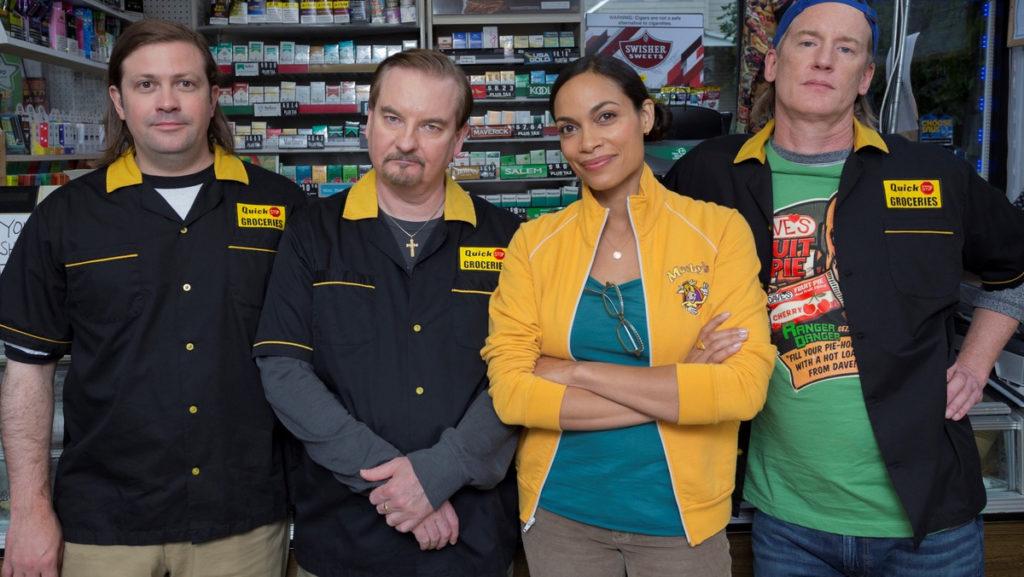The best thing to be said about “Clerks III” is that Kevin Smith made it. For those who have not seen any other films in the “Clerks” series, or any other films in the Kevin Smith/View Askew cinematic universe, this movie would be the equivalent of white noise. Its constant barrage of references, harkening back to the glory days of the first two movies, is something only hardcore fans can truly appreciate. Just like with Smith’s last film, “Jay and Silent Bob Reboot,” he has essentially made fan service for his niche subgroup of followers.
Still, Kevin Smith or the “Clerks” series may not be something that is widely known to the average movie-goer. However, Smith has been making movies for nearly three decades now; with a filmography that includes “Clerks,” “Mallrats” and “Chasing Amy,” he was able to create a series of raunchy comedies that were all connected in one shared universe. As of recent years, Smith has tried to break out into the horror realm with movies like “Tusk” and “Yoga Hosers” but ultimately has come very short of critical success. The idea of “Clerks III” came about after a serious turning point in Smith’s life, a nearly fatal heart attack that he suffered in 2018. This life-altering moment created the basis for the premise of the film, as after Randal (Jeff Anderson) nearly dies from a severe heart attack, he enlists the help from his life long friend F to make a movie reliving their best moments working at the everyday convenience store, the Quick Stop.
A great amount of the charm in the first “Clerks” movie came from the way in which it was made. The film persevered through its extremely low budget of $27,000, managing to still have personality, style and relatable characters to make it an instant cult classic. Smith has lost a lot of his virtuosity as a writer since then, something that could already be felt in the series’ second installment, “Clerks II,” and something that is clearly seen in the very beginning of “Clerks III.” A scene that could have been comedically dense, where Randall is getting his heart treated by some eccentric doctors, instead turns into a series of phallic jokes and references to “The Mandalorian.” Smith is someone who is clearly very knowledgeable about comic books and movies, and he feels the need to crowd his films with as many pop culture references as he can. It is an issue that has become only more prevalent as his career has gone on.
On top of that, “Clerks III” runs more like a tribute to the original film’s legacy than it does a direct sequel. So much of the movie relies on the idea of reliving the past that it forgets to tell a compelling story in the present. There are plenty of documentaries showcasing the making of the first “Clerks,” most of which are likely more compelling and amusing than this.
While there is a lot to be said against “Clerks III,” it is a hard movie to be mad about, and that is because Smith truly cares about his characters. There is a turning point in the film where Smith really tries to pull on the heartstrings of the fans. The more emotional moments of the film are executed a bit clumsily but are still quite effective. Dante and Randall, throughout all of the “Clerks” movies, have lived depressing lives. The world never seemed to turn in their favor, and now that they are older, all they can do is reflect on the past, whether they want to or not. “Clerks III” may lack any semblance of style or substance, but it has a lot of heart.
Yes, “Clerks III” is a complete mess of a movie. It ranges from surprisingly charming to utterly embarrassing, and it is so high on its own nostalgia that it loses any coherent structure, but as long as the fans are satisfied with the trilogy’s final chapter, who is to judge?





















